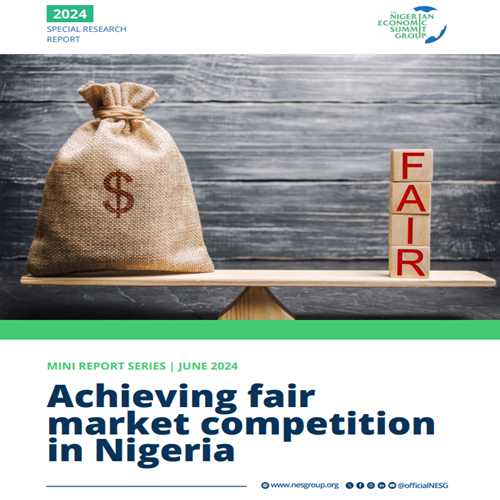Posted Tue, Jun 18, 2024 12:09 AM
Download Report (2627 downloads)
There is robust evidence supporting the economic advantages of fair competition. According to economic theory, most commercial enterprises prioritise profit maximisation. However, in a fair market, businesses attempt to achieve this goal through efficient operations, innovation, and meeting consumer demands. This ensures that profits are earned through legitimate and competitive means which supports a thriving business environment and dynamic economy. Fair market competition fosters efficient market functioning, business incentives for innovation and increased productivity, which is pivotal for sustained economic growth. It also promotes consumer protection while guarding against anti-competitive behaviour. In a competitive market, consumers benefit from increased choices and product quality, enhancing their welfare. On the other hand, an unfair competitive environment hampers resource allocation, entrepreneurship, innovative investment and hinders economic transformation. Due to intertwined and multi-faceted macroeconomic and structural challenges, Nigeria has yet to realise its full economic potential. Chief amongst these challenges are substantial infrastructural deficits underlined by declining foreign investment. Data from the National Bureau of Statistics (NBS) reveals that foreign capital inflows stood at US$3.91 billion in 2023, a significant drop from US$5.33 billion in 2022 and US$20.75 billion in 2014.
Nigeria also ranks low globally in innovation. According to the World Intellectual Property Organisation, Nigeria was ranked 109th out of 132 countries in the 2023 Global Innovation Index (GII). The GII measures innovation performance across countries based on indicators such as institutions, human capital and research, infrastructure, market sophistication, business sophistication, knowledge and technology outputs, and creative outputs. Despite its potential benefits, Nigeria has faced persistent challenges in establishing competitive markets due to pervasive difficulties in the business environment. Also, corruption, policy inconsistency, regulatory bottlenecks, and infrastructure deficits have impeded the country's competitive environment. Such challenges breed unfair market conditions because more established businesses or those that can take advantage of market power and loopholes, for example, would be in a more favourable position to new entrants. This report delves into the significance and challenges to fair market competition in Nigeria, proposing a framework to foster a competitive market economy.
